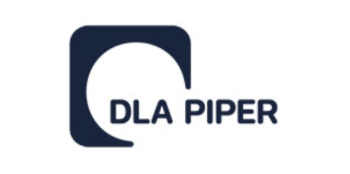CASES WE ARE WATCHING
Lee v. Tam
TRADEMARK – Cert. Pending
Pro-Football, Inc. v. Amanda Blackhorse, et al.
TRADEMARK – Cert. Pending
ISSUE: Whether the Lanham Act’s disparagement clause violates the First Amendment or is impermissibly vague.
Simon Shiao Tam leads a dance-rock band and sought to trademark the band’s name: The Slants. The Trademark Trial and Appeal Board (TTAB) upheld the PTO’s decision not to register the mark under § 2(a) because the mark disparages a substantial composite of an identifiable group of people − persons of Asian ancestry. A Federal Circuit panel affirmed, finding the PTO’s refusal to register the mark did not abridge Tam’s First Amendment right to free expression. An en banc Federal Circuit, however, found § 2(a) is facially unconstitutional and vacated the TTAB’s decision. The Court saw the disparagement clause as a viewpoint-based restriction on speech, reviewed the statute with strict scrutiny, and found it invalid.
The Solicitor General, on behalf of PTO Director Michelle Lee, has appealed the en banc decision. The petitioner argues the disparagement clause does not restrict free speech and establishes lawful eligibility for federal trademark registration. Moreover, even if the PTO refuses to register Tam’s mark, the Lanham Act offers Tam certain remedies to protect his band’s name from misappropriation or misuse. Tam contends his mark is not disparaging because the term is not used as a slur, but as a “badge of pride.” He further argues the disparagement clause violates the First Amendment by restraining free speech and is unconstitutionally vague because of the subjectivity in deciding whether a term is disparaging.
Relatedly, in July 2015, the Eastern District of Virginia upheld the TTAB's cancellation of six trademark registrations owned by Pro-Football, Inc. (PFI), proprietor of the Washington Redskins NFL franchise.* The registrations were canceled based on claims that the REDSKINS trademarks “may disparage” a substantial composite of Native Americans. PFI appealed the decision to the Fourth Circuit, and while pending, PFI also filed a petition for writ of certiorari with the Supreme Court contending that its appeal should be heard by the Supreme Court with Lee v. Tam.
SCA Hygiene Products AB v. First Quality Baby Products LLC
PATENT – ARGUMENT: NOVEMBER 1, 2016
ISSUE: Whether the equitable defense of laches may bar a claim for monetary remedies for patent infringement.
Laches is an equitable defense that can bar equitable remedies when a plaintiff has unreasonably delayed filing suit, thereby prejudicing the defendant. It has been applied to the availability of monetary remedies in patent infringement cases. Sections 282 and 286 of the Patent Act enumerate specific defenses to a patent infringement action and set forth a statutory limitation period of six years for monetary remedies, respectively.
Sitting en banc, a 6-5 majority of the Federal Circuit found that the sections do not bar the application of laches in patent cases. Following A.C. Aukerman Co. v. R.L. Chaides Constr. Co. (Fed. Cir. 1992) (en banc), the court found § 282’s broad language and its legislative history support the inclusion of laches as a bar to legal damages (i.e., monetary remedies) under the Patent Act in the absence of express congressional intent to the contrary.
This decision came on the heels of the Supreme Court’s May 2014 decision in Petrella v. Metro-Goldwyn-Mayer, Inc.,** which reached the opposite conclusion under the Copyright Act. Petrella held that laches cannot bar legal relief because the Copyright Act includes a three-year limitation period on damages. On the other hand, laches may be available to bar an equitable remedy, such as an injunction.
Petitioner SCA Hygiene Products argues Petrella is applicable in the patent context and the Patent Act’s six-year statutory limitation period renders laches unavailable as a bar to legal damages. Respondent First Quality Baby Products argues the Federal Circuit correctly found that Congress codified the laches defense in the broad language of § 282 and that Petrella is not dispositive in the patent context.




